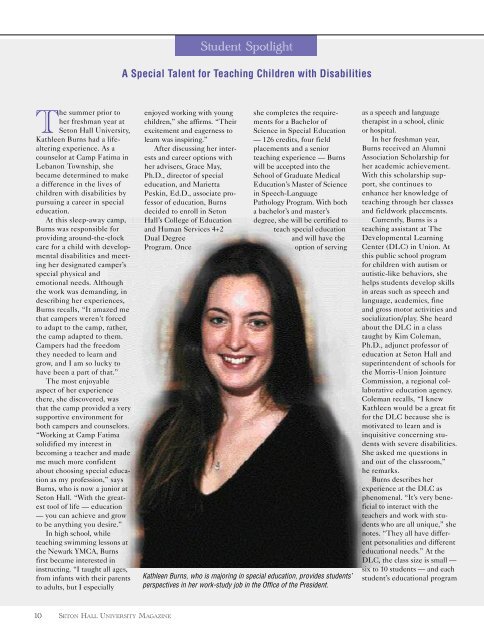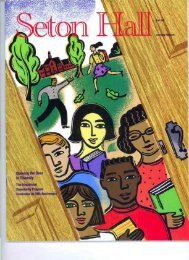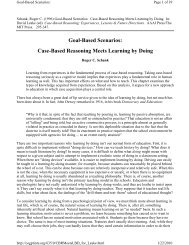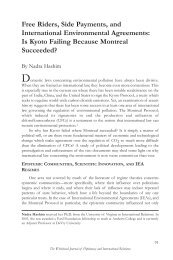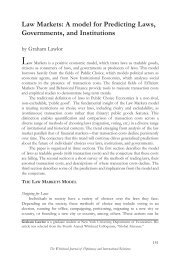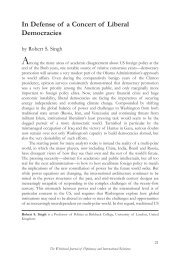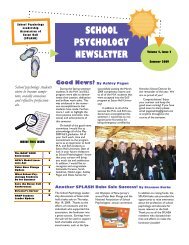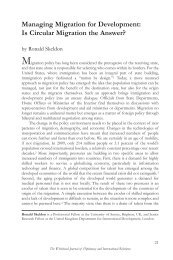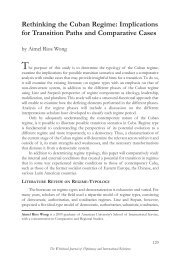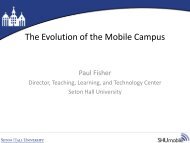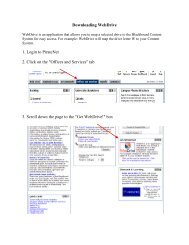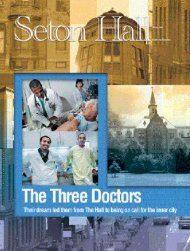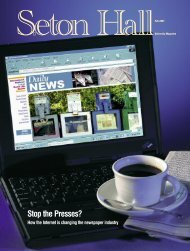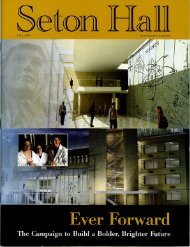Seton Hall Magazine, Winter 2003 - Seton Hall University
Seton Hall Magazine, Winter 2003 - Seton Hall University
Seton Hall Magazine, Winter 2003 - Seton Hall University
Create successful ePaper yourself
Turn your PDF publications into a flip-book with our unique Google optimized e-Paper software.
The summer prior to<br />
her freshman year at<br />
<strong>Seton</strong> <strong>Hall</strong> <strong>University</strong>,<br />
Kathleen Burns had a lifealtering<br />
experience. As a<br />
counselor at Camp Fatima in<br />
Lebanon Township, she<br />
became determined to make<br />
a difference in the lives of<br />
children with disabilities by<br />
pursuing a career in special<br />
education.<br />
At this sleep-away camp,<br />
Burns was responsible for<br />
providing around-the-clock<br />
care for a child with developmental<br />
disabilities and meeting<br />
her designated camper’s<br />
special physical and<br />
emotional needs. Although<br />
the work was demanding, in<br />
describing her experiences,<br />
Burns recalls, “It amazed me<br />
that campers weren’t forced<br />
to adapt to the camp, rather,<br />
the camp adapted to them.<br />
Campers had the freedom<br />
they needed to learn and<br />
grow, and I am so lucky to<br />
have been a part of that.”<br />
The most enjoyable<br />
aspect of her experience<br />
there, she discovered, was<br />
that the camp provided a very<br />
supportive environment for<br />
both campers and counselors.<br />
“Working at Camp Fatima<br />
solidified my interest in<br />
becoming a teacher and made<br />
me much more confident<br />
about choosing special education<br />
as my profession,” says<br />
Burns, who is now a junior at<br />
<strong>Seton</strong> <strong>Hall</strong>. “With the greatest<br />
tool of life — education<br />
— you can achieve and grow<br />
to be anything you desire.”<br />
In high school, while<br />
teaching swimming lessons at<br />
the Newark YMCA, Burns<br />
first became interested in<br />
instructing. “I taught all ages,<br />
from infants with their parents<br />
to adults, but I especially<br />
10 SETON HALL UNIVERSITY MAGAZINE<br />
Student Spotlight<br />
A Special Talent for Teaching Children with Disabilities<br />
enjoyed working with young<br />
children,” she affirms. “Their<br />
excitement and eagerness to<br />
learn was inspiring.”<br />
After discussing her interests<br />
and career options with<br />
her advisers, Grace May,<br />
Ph.D., director of special<br />
education, and Marietta<br />
Peskin, Ed.D., associate professor<br />
of education, Burns<br />
decided to enroll in <strong>Seton</strong><br />
<strong>Hall</strong>’s College of Education<br />
and Human Services 4+2<br />
Dual Degree<br />
Program. Once<br />
she completes the requirements<br />
for a Bachelor of<br />
Science in Special Education<br />
— 126 credits, four field<br />
placements and a senior<br />
teaching experience — Burns<br />
will be accepted into the<br />
School of Graduate Medical<br />
Education’s Master of Science<br />
in Speech-Language<br />
Pathology Program. With both<br />
a bachelor’s and master’s<br />
degree, she will be certified to<br />
teach special education<br />
and will have the<br />
option of serving<br />
Kathleen Burns, who is majoring in special education, provides students’<br />
perspectives in her work-study job in the Office of the President.<br />
as a speech and language<br />
therapist in a school, clinic<br />
or hospital.<br />
In her freshman year,<br />
Burns received an Alumni<br />
Association Scholarship for<br />
her academic achievement.<br />
With this scholarship support,<br />
she continues to<br />
enhance her knowledge of<br />
teaching through her classes<br />
and fieldwork placements.<br />
Currently, Burns is a<br />
teaching assistant at The<br />
Developmental Learning<br />
Center (DLC) in Union. At<br />
this public school program<br />
for children with autism or<br />
autistic-like behaviors, she<br />
helps students develop skills<br />
in areas such as speech and<br />
language, academics, fine<br />
and gross motor activities and<br />
socialization/play. She heard<br />
about the DLC in a class<br />
taught by Kim Coleman,<br />
Ph.D., adjunct professor of<br />
education at <strong>Seton</strong> <strong>Hall</strong> and<br />
superintendent of schools for<br />
the Morris-Union Jointure<br />
Commission, a regional collaborative<br />
education agency.<br />
Coleman recalls, “I knew<br />
Kathleen would be a great fit<br />
for the DLC because she is<br />
motivated to learn and is<br />
inquisitive concerning students<br />
with severe disabilities.<br />
She asked me questions in<br />
and out of the classroom,”<br />
he remarks.<br />
Burns describes her<br />
experience at the DLC as<br />
phenomenal. “It’s very beneficial<br />
to interact with the<br />
teachers and work with students<br />
who are all unique,” she<br />
notes. “They all have different<br />
personalities and different<br />
educational needs.” At the<br />
DLC, the class size is small —<br />
six to 10 students — and each<br />
student’s educational program


